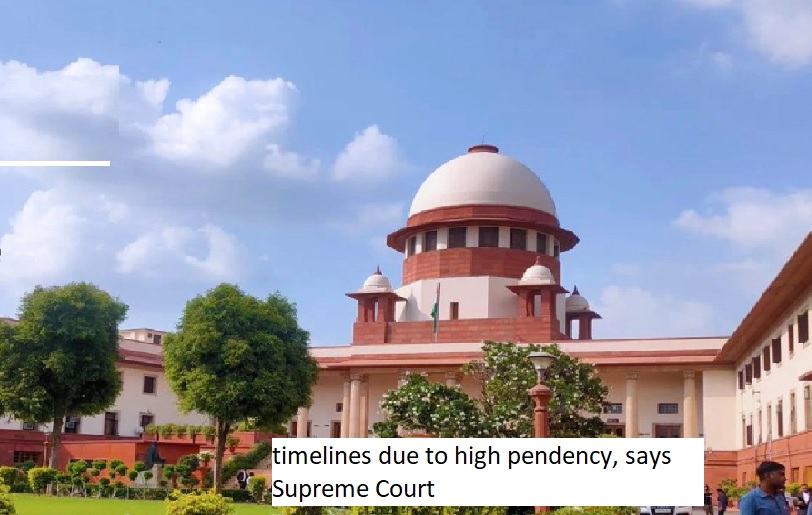


The Supreme Court has underscored the prevalent issue of substantial case backlogs across the country's courts. In a recent development, the Court emphasized the necessity for Constitutional Courts, including both the Supreme Court and High Courts, to exercise caution in establishing rigid timelines for case resolutions. This cautious approach, the Court noted, should be the norm, with exceptions allowed only in circumstances deemed truly exceptional.
This pronouncement from the Supreme Court was prompted by a specific case where a petitioner sought a directive for the expeditious disposal of a criminal matter within a stipulated timeframe. The petitioner's primary contention was that his bail application, submitted in June 2023, was languishing without consideration in the Bombay High Court. Consequently, the petitioner turned to the Supreme Court by filing a writ petition, urging the apex court to intervene.
However, the Supreme Court, presided over by a bench comprising Justices Abhay S Oka and Pankaj Mithal, declined to entertain the writ petition. In its refusal, the Court expressed a nuanced perspective on the challenges faced by high courts, particularly those with a substantial caseload. The Court acknowledged the inevitability of delays in the disposal of bail petitions, given the sheer volume of such applications in larger high courts. It pointed out that in cases of extraordinary urgency, petitioners were free to approach the relevant bench directly. The Court expressed confidence that, under genuine circumstances, the concerned bench would entertain such requests.
In addition to rejecting the writ petition, the Supreme Court addressed an alternative plea made by the petitioner – the imposition of a specific timeline for the hearing of his bail application by the High Court. In response, the Supreme Court reiterated its stance on the broader issue of docket congestion. It emphasized that the colossal backlog of cases in high courts and other courts nationwide should dissuade Constitutional Courts from succumbing to the temptation of setting rigid schedules for case disposal, except in situations deemed truly extraordinary.
The Court's position reflected a pragmatic understanding of the challenges faced by the judiciary in managing the influx of cases. By acknowledging the intrinsic delays associated with the large number of bail petitions, the Supreme Court signaled a realistic approach to the complexities of the legal system. The Court's advice to petitioners to directly approach the concerned bench in cases of exceptional urgency also underscored the flexibility inherent in the legal process.
Furthermore, the Supreme Court's reluctance to endorse fixed timelines for case disposal echoed a broader concern about the burden on the entire judicial system. The reference to the extensive pendency in every high court and court across the country highlighted the systemic nature of the challenge. The Court's aversion to imposing time-bound schedules unless circumstances were truly exceptional indicated a reluctance to adopt a one-size-fits-all approach to case management.
In conclusion, the Supreme Court's recent observations and decisions in this matter reflected a nuanced understanding of the complex dynamics surrounding case pendency and disposal. The Court's emphasis on discretion, flexibility, and a case-by-case approach underscored the need for a balanced and pragmatic response to the challenges faced by the judiciary in ensuring timely justice delivery.
TAGS: Supreme Court Constitutional Courts Case Backlog Time-bound Schedule High Courts Writ Petition Bail Application Justices Abhay S Oka and Pankaj Mithal